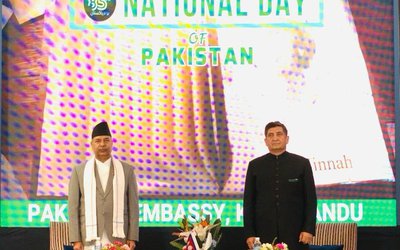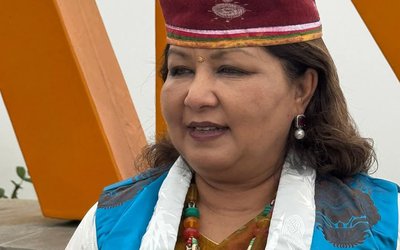"Imagine there are no countries. It is not hard to do." The imagination of John Lennon in his famous song included several illusions -- a world without government, religion and possession, a world where things that divide people did not exist. Since the emergence of the human race, it is unimaginable to conceive the vision of everyone sharing the world, instead of fighting for imaginary boundaries. Migration has been a human trait for millions of years- from the nomads to the industrial revolution.
One of my professors once told me not so long ago, “If you want to contemplate on the past, take a look at your present, as your present is a reflection of the days gone by. If you want to predict the future, observe the present, as your present will always manifest your future.”
Humans have become aware of themselves and their individuality, which has brought about separation into distinct communities, national borders, defined wage scales, access to social protection and differentiated standards of living. While the borders are permeable to a certain privileged category of individuals, they are impermeable to the greatest number. Migrants who cross national borders without permission are often treated as criminals and dehumanized.
The border-free world of digital networks (the world of bits and bytes) seem to worry the traditional people, their territory, identity, and sovereignty, as anachronistic as swords and armor. The symbols of the nation are iconic images that relate the Nepalese citizens to the values and civic references of the collective identity. These symbols, which we call patriotic, are a series of emotional stimuli that have the power to move people. The national flag, Mt. Everest and Lumbini, the birthplace of Buddha, are patriotic symbols that represent us and give us our identity of being a Nepali. When these symbols are recognized, respect and solemnity are called for, consecutively expressing the love for the country.
Friendly relations among nations are the norm, not the exception. Nepal is going through a time of decisive changes that will define a new form of political and social interaction. Social networks and technological advances have created a world in which information has become a popular domain, requiring us to be more aware and accountable for our actions and their consequences in a transparent and honest way.
When you are considered a destitute, you have no place to go. Thus, the proletarians have no country. Our country has the power to instill patriotism. "I am proud to be a Nepali and it is an exhilarating feeling.”
Terror in the world happens because of lands, religions, races and the desire to be wealthy. Occasionally, social reality is more amazing than our own imagination. Equal rights for all, ethnic and racial equality, religious freedom, personal independence, and free economy cannot be achieved with hatred ruling our hearts. These values are shaken due to increasing nationalism, racism, intolerance in the world and the sad reality of material existence.
Many nations, rich and poor, fear that their culture, identity, religion and their security will be lost on the massive arrival of foreigners. Despite the musical manifesto made by John Lennon, the idealization of a place without borders will continue to be part of claims made by millions of people.
I believe that we as a species ought to work on avoiding killing ourselves to the point of extinction. Many people just cannot "imagine" this because it is still very far off in the future, and it's still not a given. Our species may not be able to survive long enough to make the transition. But in order for it to happen, we have to start somewhere. We have to ‘imagine’.

Deepak Raj Joshi
(The author is a lecturer and IT consultant. He also writes fiction under the name of Kapeed Joshi. He can be reached by email at info@dipakjoshi.com.np.)
- Criminal Governance & Neopatrimonialism
- Jul 29, 2024
- Participatory Democracy
- Dec 07, 2023
- Rise Of Populism Boon Or A Bane
- Aug 13, 2023
- The Collapse Of Confidence And The Rise Of RSP
- May 17, 2023
- Lottocracy
- Apr 30, 2023














